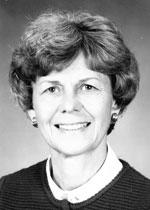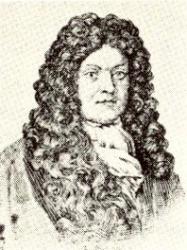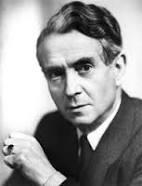1660 - 1722 Person Name: Laur. Laurenti Topics: Tilføiede Salmer; Added Hymns; Andre Søndag I Advent Til Høimesse -Til Sekund Tekstrækkes Evangelium; Andre Søndag I Advent Til Høimesse -Til Tredje Teksxtækkes Evangelium; Andre Søndag I Advent Til Aftengudstjeneste; Second Sunday in Advent; Second Sunday in Advent; Second Sunday in Advent; Femte Søndag efter Hellig 3 Kongers Dag Til Aftengudstjeneste - Til Sekund Tekstrækkes Epistel; Fifth Sunday after Epiphany; Sjette Søndag efter Hellig 3 Kongers Dag Til Aftengudstjeneste; Sixth Sunday after Epiphany; Tredje Søndag I Faste Til Aftengudstjeneste - Til Sekund Tekstrækkes Lektie; Third Sunday in Lent; Skjærtorsdag Til Aftengudstjeneste - Til Tredje Tekstrækkes Lektie; Maundy Thursday; Femte Søndag efter Paaske Til Høimesse -Til Sekund Tekstrækkes Evangelium; Fifth Sunday after Easter; Andre Pinsedag Til Aftengudstjeneste - Til Sekund Tekstrækkes Epistel; Pentecost; Syttende Søndag efter Trefoldiheds Fest Til Aftengudstjeneste; Seventeenth Sunday after Trinity Sunday; Tjueførste Søndag efter Trefoldiheds Fest Til Høimesse -Til Sekund Tekstrækkes Evangelium; Tjuefemte Søndag efter Trefoldiheds Fest Til Høimesse; Tjuefemte Søndag efter Trefoldiheds Fest Til Høimesse -Til Sekund Tekstrækkes Evangelium; Tjuefemte Søndag efter Trefoldiheds Fest Til Høimesse -Til Tredje Teksxtækkes Evangelium; Tjuefemte Søndag efter Trefoldiheds Fest Til Aftengudstjeneste - Til Sekund Tekstrækkes Epistel; Tjuefemte Søndag efter Trefoldiheds Fest Til Aftengudstjeneste - Til Tredje Tekstrækkes Epistel; Twenty fifth Sunday after Trinity Sunday; Twenty fifth Sunday after Trinity Sunday; Twenty fifth Sunday after Trinity Sunday; Twenty fifth Sunday after Trinity Sunday; Twenty fifth Sunday after Trinity Sunday; Aarvaagenhed; Alertness; Endens Tid; End of Time; Fortabelsen; Perdition; Helliges Samfund; Holy Society; Lunkenhed; Lukewarmness; Pilgrimsvandring, de Kristnes; The Christian Pilgrimage Author of "I Jomfruer, I kloge" in Salmebog for Lutherske Kristne i Amerika Laurenti, Laurentius, son of Herr Lorenz, or Laurenti, a burgess of Husum, in Schleswig, was born at Husum, June 8, 1660. He entered the University of Rostock in 1681, and after a year and a half spent there, went to Kiel to study music. In 1684 he was appointed cantor and director of the music at the cathedral church at Bremen. He died at Bremen, May 29, 1722 (Koch, iv. 281; Rotermund's continuation of Jöcher's Gelehrten-Lexicon, iii. 1405, &c). Laurenti was one of the best hymn-writers of the Pietistic school. His hymns are founded on the Gospels for Sundays and Festivals, and they draw out the bearing on the Christian life of the leading thoughts therein contained. They are of noble simplicity; are Scriptural, fervent, and often of genuine poetical worth. In Freylinghausen's Gesang-Buch, 1704 and 1714, no less than 34 are included, and many of these, with others by him, are still in extensive German use. They appeared in his:—
Evangelia Melodica, das ist: Geistliche Lieder,und Lobgesange, nach den Sinn der ordentlichen Sonn-und Festages Evangelien, &c. Bremen, 1700 [Royal Library, Berlin], with 148 hymns on the Gospels, and two others.
Of his hymns those which have passed into English are:——
i. Du wesentliches Wort. Christmas. Founded on St. John i. 1-12. In his Evangelia Melodica, 1700, p. 30, in 8 stanzas of 8 lines, entitled, "For the Third Day of Christmas." Included in Freylinghausen's Gesang-Buch, 1704, No. 20; and, recently, as No. 83, in the Berlin Geistliche Lieder, 1863. The translations in common use are:—
1. 0 Thou essential Word, Who from. A good translation, omitting st. iii., v., by Miss Winkworth, in her Lyra Germanica, first Ser., 1855, p. 15 (2nd edition, 1856, considerably altered); and repeated, abridged, in Flett's Collection, Paisley, 1871. Varying centos, beginning with st. i., 1. 5, altered to "O Saviour of our race," are found in America, as in Boardman's Selections, Philadelphia, 1861; the Pennsylvania Lutheran Church Book, 1868; and the Dutch Ref. Hymns of the Church, 1869.
2. 0 Thou essential Word, Who wast. By Miss Winkworth, in her Chorale Book for England, 1863, No. 54. This is her 1856 version (as above) rewritten to the original metre. Repeated, in full, in Dr. Thomas's Augustine Hymn Book, 1866, and the Ohio Lutheran Hymnal, 1880; and, abridged, in the English Presbyterian Psalms & Hymns, 1867, and Laudes Domini, N. Y., 1884.
ii. Ermuntert euch, ihr Frommen. Second Advent. This is his finest hymn. In his Evangelia Melodica, 1700, p. 353, in 10 stanzas of 8 lines, entitled, "For the 27th Sunday after Trinity." It is founded on St. Matt. xxv. 1-13; and unites the imagery of the parable of the Ten Virgins with that of Rev. xx., xxi. Included, as No. 578, in Freylinghausen's Gesang-Buch, 1704; and, recently, as No. 1519, in the Berlin Geistliche Lieder, ed. 1863. The translation in common use is:—
Rejoice, all ye believers. By Mrs. Findlater, in Hymns from the Land of Luther, 1st Ser., 1854, p. 61 (1884, p. 62), a good translation of st. i.-iii., vii., viii., x. In full, but altered to the original metre, in Schaff’s Christ in Song, 1869 and 1870. This version is found in a large number of English and American hymnals, under the following forms:—
(1) Rejoice, all ye believers (st. i.). Varying centos are found in Mercer, 1864, Hymnal Companion, 1876, &c.; and in America in Hatfield's Church Hymn Book, 1872, Evangelical Hymnal, N. Y., 1880, and others.
(2)
Laurentius Laurenti


 My Starred Hymns
My Starred Hymns




